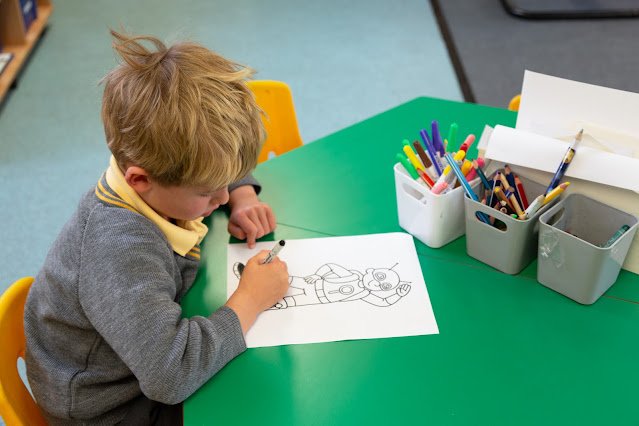So your child has now finished their Primary education and is off to Secondary school; you are probably feeling a little bit older and almost as nervous as they are. What can you do that will really help them (and consequently yourself) through this potential area of child/parent dischord?
From many years as a teacher, both in primary and secondary schools, as a Headteacher, and, most importantly, as a mother of four children who have been through the transition from big fish in a small pond to little fish in a wide ocean, here are my top ten must do’s':
- Speak positively about the new school… always… no matter what you privately think. Your child needs to hear only positivity and they need to know that you think the school is great
- Find out everything you can about the school alongside your child. You’ve been to the open day and the year 7 ‘meet the teachers’ evening, you’ve read the prospectus and you’ve chatted with the parents - do you actually know more facts about the new school than your child does? Share all of the information, positively. Sit and go through the website together, google the school and watch the funny staff videos together - familiarity will ensure confidence.
- The route to school in the morning is always something that children stress about. During the summer holidays take the time to draw a map and try out the route with your child, do it as they would, walk it or bike it or bus it (yes time to get that old bike out and remind your child of all the things you learned during your cycling proficiency test!)
- It may sound silly but compliment your child every day, make an effort to praise their actions, and build their confidence - be extra patient during the summer holiday and make a real effort to make your child feel positive about themselves, we think we do this anyway but can you remember the last compliment you paid your child, not a thank-you, a compliment about their ability or actions?
- Make sure you buy the right uniform, double-check this. I once bought the wrong year group tie for one of my sons, he spent the whole first day feeling mortified. Look carefully at the website, what rucksacks do the children have? Which shoes are allowed and popular? Children entering a new school do NOT want to be noticed, they just want to fit in - you can help reassure them by thinking about the smallest detail.
- In the last week of the holidays make the family get up at the time you will be doing once school starts. Your child’s body clock will need to adjust after a long sleepy summer break and this helps them to be alert and ready on the first day. NEVER book a holiday to return the night before term starts, believe me, that will be a logistical nightmare full of shouting and blame the next day - not the way to start.
- During the first week ask your child lots of questions but don’t expect many answers! Do try to look out for their student planner, every school has one and usually, it contains information about timetable, equipment needed and school rules, these last ones are worth talking through with your child, make sure they understand the times of registration and how the reward and punishment system works, you will also need to sign the planner every week and often your child will fail to tell you this until they are told off at school and consequently you are told off at home!
- Don’t be too pushy with your child’s friendships, you will have already brought them up to know what good behaviour is and they will eventually work out who their best friends will be, this takes a bit of time and they DON’T want your help - you need to trust them. If they are still not settled after a month and unhappy then you will need to discreetly talk to their form tutor.
- Make sure that your child knows that not all teachers are the same, they teach in different ways and they will not get on with all of them in the same way, this does not mean that the child is ‘rubbish’ or the teacher is ‘rubbish’ - it’s just part of growing up and learning about yourself, being resilient and realising that teachers are always there to help, your child will need to ask if they don’t understand, even if that means waiting until break.
- The most important tip for a parent at this time is to stay calm and remember how you felt. Do not tell your child what to do, try to work alongside them to solve the mysteries of this big move - the pond may have got a lot bigger but the parent is there to keep the waters calm. In the words of a good old-fashioned British TV icon - Don’t Panic!






Comments
Post a Comment